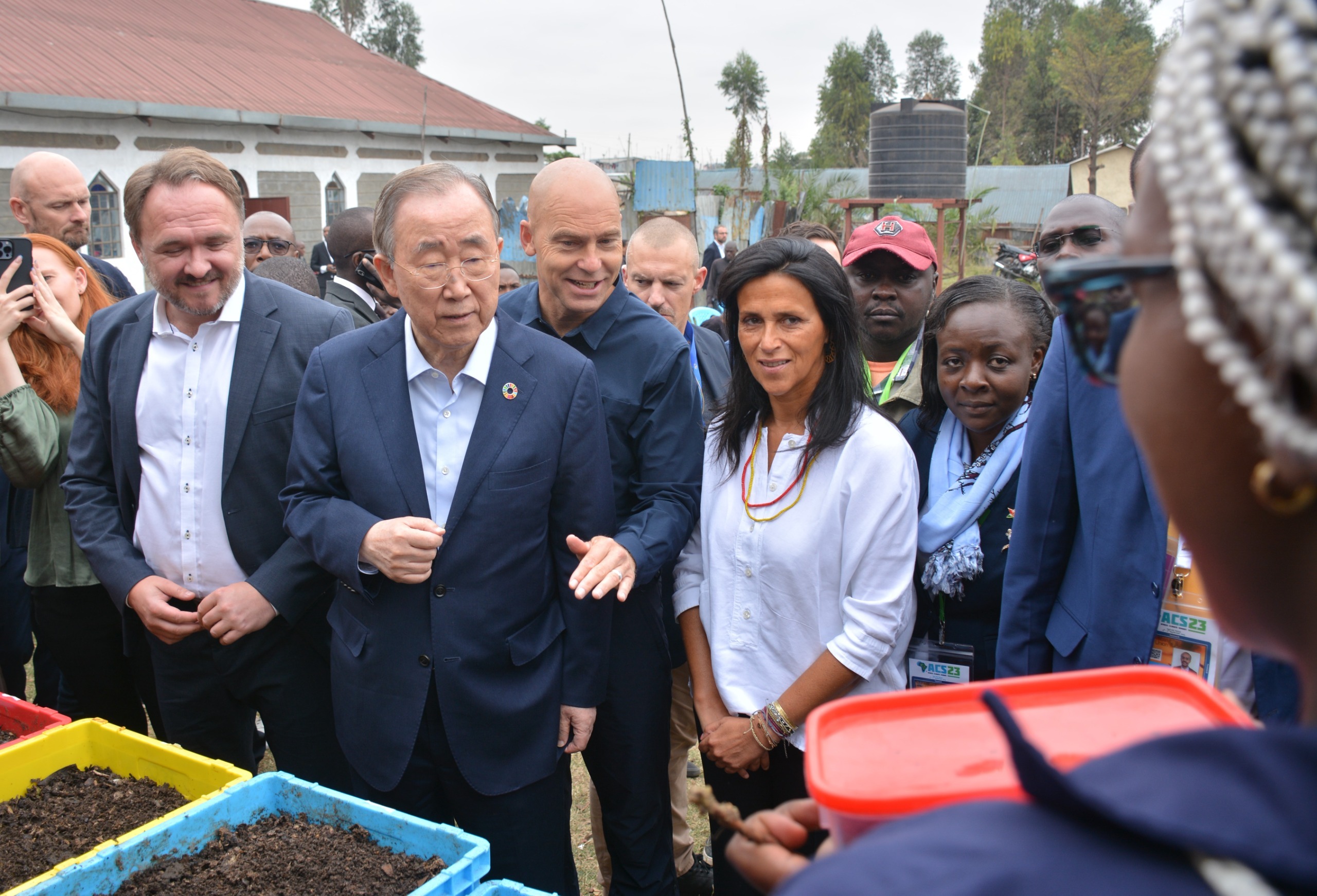Youth groups from Mukuru kwa Reuben, one of the largest informal settlements in Kenya, are using Black Soldier Fly (BSF) rearing as a unique and sustainable solution to the problem of waste and flood management in the area.
By using organic waste, which makes up for 70 per cent of the waste in the area to raise BSF larvae, the youth are also addressing the fodder shortage in Kenya which is a result of the ongoing drought.
Catherine Nina, who is the business trainer for 53 youth in the area explained that the process to rear the larvae to adulthood takes approximately 40 days after which they sell the fodder for a profit.
“A 50kg bag of fass, which is the animal feed, goes for about Ksh 2,500,” she avers.
According to Nina, the units have equipped youth in the area with invaluable skills that help them conserve the environment as well as earn a living.
The work in Mukuru to improve water management, roads and sanitation as part of the People’s Adaptation Plan, shows how locally-led action can unlock the enormous potential and creativity of communities to develop and implement solutions, while catalysing adaptation that is more effective, equitable and better targeted at local needs.
Speaking during a visit to Mukuru on Monday, former Secretary-General Ban Ki-moon noted that “climate change may be a global phenomenon but its impacts are felt locally. So it follows that solutions to this global crisis also have to be local. I commend the people of Mukuru for their innovative work and look forward to seeing it replicated elsewhere.”
During the visit, the Global Center on Adaptation (GCA) CEO Patrick Verkooijen announced that thanks to French and Danish support the GCA will support the setting up of ten additional Black Soldier Fly units in Mukuru.
The GCA is supporting the implementation of the People’s Adaptation Plan in Mukuru by brokering an agreement between the African Development Bank (under the Nairobi Rivers Basin Rehabilitation and Restoration Program) and Dan Church Aid to support Black Soldier Fly (BSF) farming for waste management under the Africa Adaptation Acceleration Program (AAAP).
Dan Jørgensen, Minister for Development Cooperation and Global Climate Policy, Denmark, who is a member of the GCA Advisory Board and has supported the Africa Adaptation Acceleration Program since its inception said “Climate adaptation is urgently needed in Africa and solutions must target the most vulnerable. Locally-led adaptation is a key priority for Denmark and the activities we have seen in Mukuru today really show the power of engaging the community.”
On her part, Chrysoula Zacharopoulou, the Minister of State for Development, Francophonie and International Partnerships, France said “France and the European Union are deeply committed to supporting local communities, such as the people of Mukuru, in implementing their adaptation plans. We believe in local solutions with international support, and that is exactly what we have seen here today.”
She in addition also accepted an invitation Ban Ki-moon and Chair of GCA to join the GCA Advisory Board.
The People’s Planning process, which was conducted in Mukuru through a collaboration between the Nairobi City County Government, Civil Society Organizations, academics and the community, offers a blueprint for locally-led planning for climate change.
The GCA is supporting peer-to-peer learning to replicate the process for adaptation in other informal settlements in Africa and Bangladesh.
For instance, a delegation of government, non-government and World Bank representatives from Monrovia, Liberia are in Nairobi this week to learn more about the Mukuru planning process and are conducting a similar process in informal settlements in Monrovia.
The resulting People’s Adaptation Plan developed in Monrovia will inform investments under the World Bank’s Liberia Urban Resilience Project.
The GCA is also supporting the development of People’s Adaptation Plans in Senegal, Rwanda and Bangladesh under the Africa Adaptation Acceleration Program (AAAP), to inform investments by multilateral and bilateral financial institutions.
During the visit, the delegation learned more about the locally-led planning process in Mukuru and visited some of the places where the Nairobi City County Government has implemented elements of the People’s Adaptation Plan.
The Global Center on Adaptation (GCA) is supporting the implementation of the People’s Adaptation Plan in Mukuru by brokering an agreement between the African Development Bank (under the Nairobi Rivers Basin Rehabilitation and Restoration Program) and Dan Church Aid.





